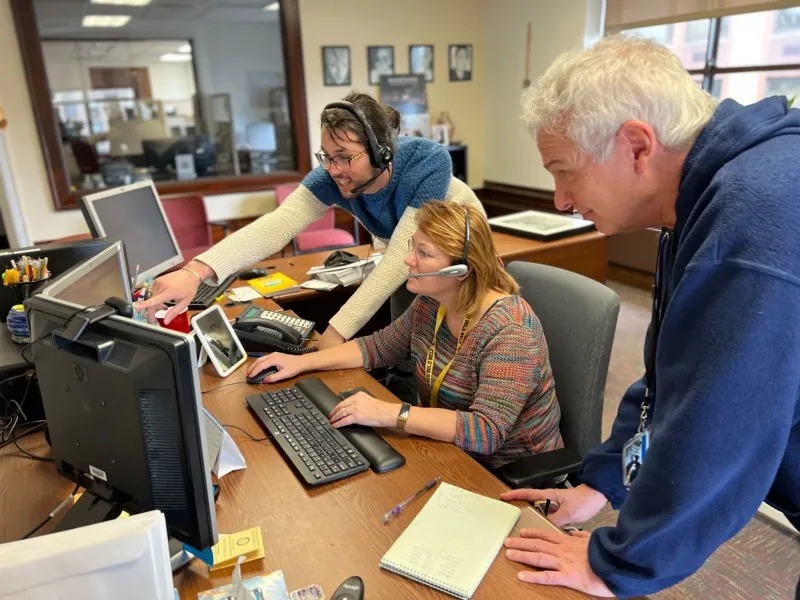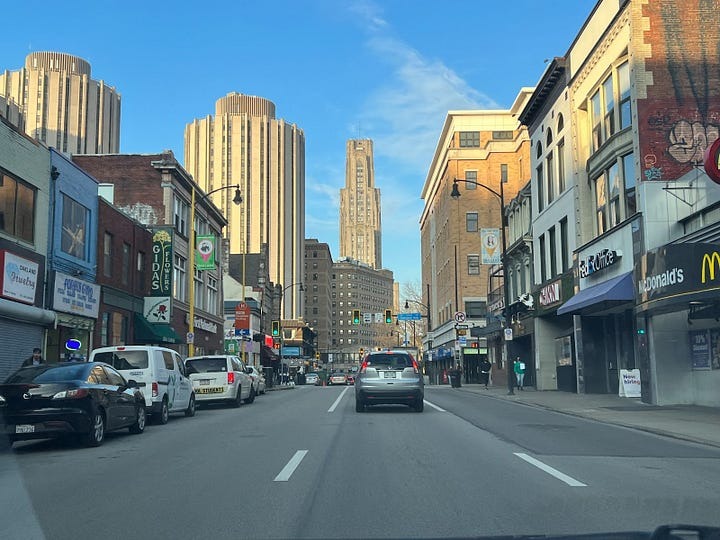Pittsburgh, Pennsylvania, USA
Project Type:
Community Engagement, Finance, Infrastructure and Utilities, Technology

2024 Gold Certification
Pittsburgh, Pennsylvania, cut serious worker injuries by over 70% in the Department of Public Works (DPW) by introducing a Real-Time Safety System (RTSS) to share worker safety issues and introduce root-cause problem solving among leaders and front-line workers.
Pittsburgh set a goal of a 30% annual decrease in its DART rate, injury incidents that lead to days away, restricted, and transferred, per 100 employees. Using the RTSS, DPW saw a 73% decrease by the end of 2024 – from 30.0 to 11.5 incidents. A program evaluation found that DPW’s early adoption of RTSS showed a statistically significant decrease in DART with a before-and-after comparison to all other departments across the city. Introducing RTSS helped front-line workers remain on the job – 2022 saw the lowest lost-time
injuries in a year in the past 15+ years – since the City began measuring. This focus on a culture of safety resulted in an overall 33% decrease in DART – from 11.7 to 8.2 incidents by the end of 2024, marking a better workplace for all City workers.
2021 Silver Certification
The City overhauled its 311 system to automatically fix spelling and other errors, anonymize requests, redact objectionable material and link related tickets.
Launched Dashburgh, a data dashboard detailing city services that includes the latest 311 data, including pothole repair requests, broken down by neighborhood.
Pittsburgh is now using 311 data as a criterion for measuring procurement outcomes.
Out With the Old
In Pittsburgh, locals quip that if it’s not snow season, it’s pothole season. To prioritize its street repair To Do list, the City’s Department of Public Works (DPW) relies in part on residents flagging problems via the 311 Response Center. 311 operators field tens of thousands of nonemergency requests each year via phone, mobile app, and social media channels. Pothole repairs are among the most common.

“In some ways, 311 is the city’s first line of defense,” says Trever Stoll, Civic Innovation Specialist in Pittsburgh’s Department of Innovation and Performance (I&P).
The 311 system worked well for more than 15 years, but service request data the 311 team shared with relevant city departments wasn’t perfect. A resident might misspell an address or include a phone number in a format the software couldn’t parse. A person’s complaint about a neighbor’s illegally parked vehicle might include personal information about the alleged offender. Multiple residents might submit requests about the same brutal pothole, creating separate repair tickets in the system that then all needed to be reviewed, addressed and closed.
The legacy system’s data quality issues were all consistently adding up to more work for staff. And they often posed obstacles to the responsive delivery of services from the DPW and other departments. In a deeper sense, unreliable data makes it harder for the City to understand residents’ needs and make equitable resource allocation decisions, says Heidi Norman, director of the I&P department.
“We knew better data could provide the foundation for our entire government to better match the services we provide to the needs of residents.”
Cleaner, Faster Data Streams
The overhaul project’s goals included upgrading the system to automatically fix spelling and other errors, anonymize requests, redact objectionable material (such as profanity), and link related tickets. The I&P department’s engineering team found solutions through a mix of its own custom-made code and off-the-shelf software tools incorporating machine learning and natural language processing.
One big aim of the 311 project was to integrate the system into the City’s open data portal, says Chris Belasco, who led the change effort as the I&P department’s data services manager.
Another open data benefit: Outside groups can leverage city data sets to build and publish useful apps and tools.

The I&P department has also built data-driven tools for both internal use and public engagement. Last year, it launched Dashburgh, a data dashboard detailing city services. The latest 311 data, including pothole repair requests, are broken down by neighborhood. Another I&P-built tool: a new internal 311 dashboard for the Mayor’s Office of Neighborhood Services (ONS). By analyzing ticket volume, type and location, the tool enables ONS staff to flag emerging issues and better respond to constituent requests and coordinate with City departments.
I&P’s team is currently developing a pothole dashboard for the DPW to help it more efficiently prioritize and act on pothole repair requests. The internal tool’s functionality includes automatically linking multiple requests to the same ticket and flagging when a resident’s request doesn’t include precise location details. “If the address is just “Main Street,” we now flag that as imprecise,” says Valerie Monaco, a senior data analyst in the I&P department.
When it launches, the pothole dashboard will be a win-win: The DPW will be able to do its work more efficiently, and drivers will see potholes disappear more quickly.
“It’s about transparency, about building trust with people by giving as real-time of a look into city operations as we reasonably can”
“The 311 work is indicative of the City’s momentum toward more data-driven governance. At a basic level, our work is about ensuring that everyone has access to the data and information needed to make the best possible decisions. Where are residents’ needs not being met? Where are we seeing challenges? Those are the kinds of questions we’re looking to answer, to break down barriers and improve the lives of residents.”
The Big Picture
When it comes to data-driven governance, knowing which pothole to fix first is the micro level. Those decisions matter to residents, translating into tangible outcomes and improved quality of life.
But Pittsburgh’s leaders see big potential to prevent bumps at the macro decision-making level as well. The I&P department views building a solid data foundation — in part through the 311 data upgrade — as a crucial part of helping the City’s various operations departments understand if they’re effectively and equitably delivering services, Belasco says. The I&P department sees a range of data-driven governance upgrade possibilities that could set the stage for insights into costing, resource allocation and performance.
An example of how better data supports performance management can be seen in the realm of procurement. Pittsburgh is now using 311 data as a criterion for measuring procurement outcomes. The City has put out an RFP seeking contractors to maintain vacant city properties. One performance expectation is defined via the number of 311 complaints received about the properties. (What Works Cities’ expert partners, including the Center for Government Excellence at Johns Hopkins University, the Behavioral Insights Team, and the Government Performance Lab at the Harvard Kennedy School, have supported Pittsburgh’s capacity-building around procurement and data governance and evaluation.)

The road ahead may not be perfectly smooth, but Pittsburgh is clearly moving forward.